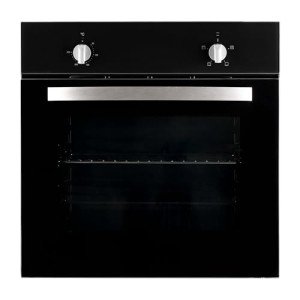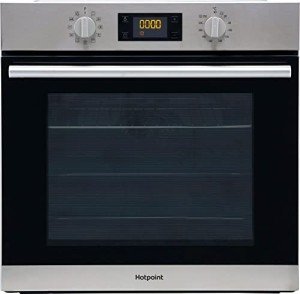The Comprehensive Guide to Single Electric Ovens: Features, Benefits, and Buying Tips
In today's fast-paced world, cooking in the house is becoming increasingly popular as people find delight in preparing meals that not just satisfy their appetite but also allow them to reveal their creativity. At the heart of numerous kitchen areas is the single electric oven, a vital device that offers benefit and dependability. This article checks out the numerous aspects of single electric ovens, including their functions, advantages, and tips for choosing the best one. Furthermore, it will attend to often asked questions to offer a much deeper understanding of this important kitchen tool.

What is a Single Electric Oven?
A single electric oven is a standalone or built-in appliance that runs using electrical power as its primary heat source. Unlike double ovens, which provide two separate cooking compartments, a single electric oven offers one cooking cavity, making it perfect for smaller sized areas or for those who do not need multiple cooking options simultaneously.
Features of Single Electric Ovens
Single electric ovens & Hobs come with several functions that improve their functionality and use. A few of the typical functions consist of:
| Feature | Description |
|---|---|
| Convection Cooking | Uses a fan to distribute hot air for even cooking. |
| Self-Cleaning | Instantly cleans up the interior by raising the temperature. |
| Digital Controls | User friendly touch controls for exact temperature level settings. |
| Multiple Cooking Modes | Choices like baking, broiling, roasting, and more. |
| Energy-Efficient | Generally more energy-efficient than gas designs. |
| Timer Functions | Built-in timers for much better cooking management. |
| Smart Features | Wi-Fi connection for push-button control via mobile phone apps. |
Advantages of Using a Single Electric Oven
Consistent Cooking Temperature: Electric ovens supply a stable temperature level, ensuring evenly cooked food without the hotspots often found in gas ovens.
Easy to Clean: Many electric ovens come with self-cleaning functions that get rid of the requirement for scrubbing and chemical cleaners.
Greater Baking Capacity: Single electric ovens generally use more baking space than their range counterparts, making them ideal for baking large items like roasts or casseroles.

Security: Electric ovens eliminate the threats connected with gas leaks and deal functions like automatic shut-off that enhance security.
Versatile Cooking Options: With numerous cooking modes, electric ovens can easily handle a broad variety of dishes, from baked products to roasted meats.
Considerations When Buying a Single Electric Oven
Selecting the ideal single electric oven can substantially affect your cooking experience. Here are some factors to think about:
Size and Space: Measure your kitchen space to ensure the oven will fit perfectly. Many single ovens have basic measurements, however it's vital to confirm.
Kind of Installation: Determine if you want a freestanding system or a built-in model. Built-in designs typically integrate better with cabinets.
Power Requirements: Ensure that your kitchen's electrical system can support the oven's power requirements, which generally range in between 240 to 280 volts.
Expense and Brand Reputation: Research different brand names and check out consumer reviews, considering both preliminary costs and long-lasting dependability.
Energy Efficiency: Look for models that come with energy-saving features to minimize electrical power costs.
Warranty and Support: Choose a brand that offers excellent consumer support and service warranty protection to make sure help in case of future repair work.
Popular Brands of Single Electric Ovens
- Bosch: Known for their dependability and smooth designs.
- GE Appliances: Offers a variety of budget-friendly and feature-rich models.
- Whirlpool: Famous for their long lasting and effective ovens.
- Samsung: Incorporates wise innovation into their devices.
- Maytag: Renowned for high-performance ovens developed for heavy use.
Often Asked Questions (FAQs)
1. What is the typical lifespan of a single electric oven?
The average life-span of a single electric oven is around 10 to 15 years, depending on the brand, usage, and upkeep. Routine cleaning and timely repair work can extend its life-span.
2. Do single electric ovens take in a lot of electrical power?
Single electric ovens can be energy-efficient, depending upon the design. Most modern-day ovens included energy-saving functions that can help decrease electrical energy usage.
3. Can I set up a single electric oven myself?
While it is possible to install a single electric oven yourself, it is highly recommended to work with a professional electrical expert, particularly when it involves electrical connections.
4. Just how much do single electric ovens cost?
The expense of single electric ovens can differ commonly. Typically, you can anticipate to invest in between ₤ 500 to ₤ 2,000, depending on the brand, features, and technology consisted of.
5. Are single electric ovens much better than gas ovens?
This can depend upon specific preferences. Electric ovens typically offer more constant temperature control and are much easier to clean up, while gas ovens tend to heat up faster and use much better temperature control for certain cooking methods.
Single electric ovens act as a foundation in contemporary kitchen areas, providing reputable efficiency and a range of features to boost the cooking experience. Their capability to prepare food equally, combined with easy-to-clean functionalities, make them a preferred choice for lots of home cooks. By comprehending their functions, benefits, and what to consider before purchasing, consumers can make educated decisions that align with their cooking requirements and kitchen space. In the end, picking a single electric oven may effectively elevate the pleasure of cooking in the house, encouraging more individuals to check out the culinary arts.



